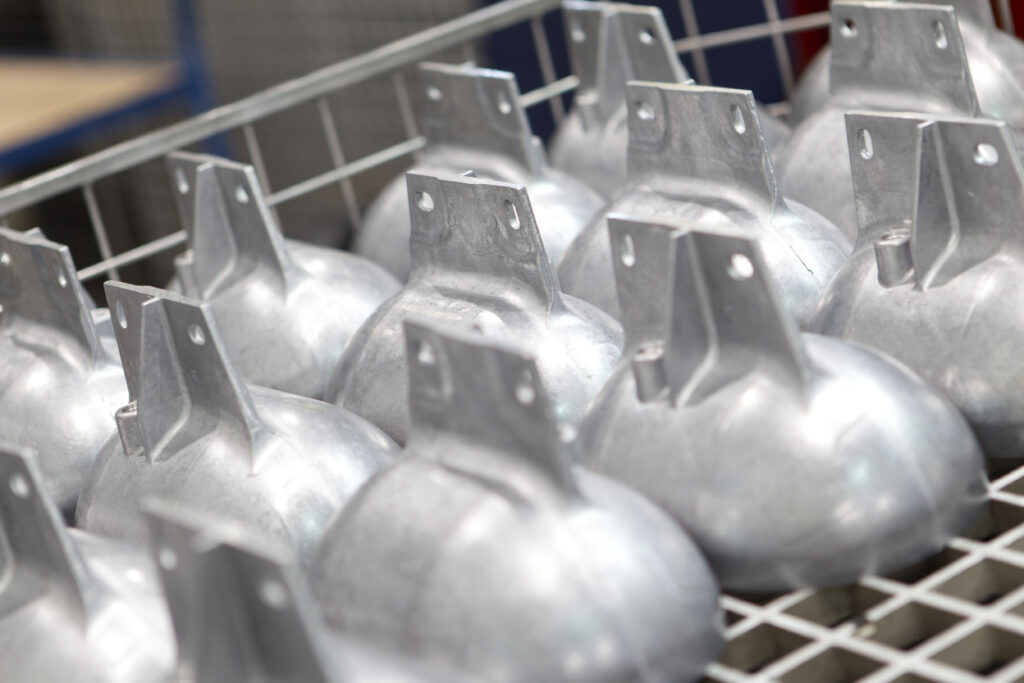
How SAG contributes with rheocasting to achieving climate targets
In order to sustainably reduce the CO2 emissions of vehicles, the reduction of vehicle weight is playing an increasingly important role. Aluminium components – especially those produced by the rheocasting process – combine lightness and excellent material properties, thus becoming a key to the automotive industry’s ability to achieve the goals of the Paris Climate Agreement.
Aluminium is already used in many areas of a vehicle. In future it will play an even more important role, be it in
Chassis parts for trucks and cars or
for battery and body parts for electric vehicles.
Because one advantage is obvious: the lighter a vehicle is, the greater its range, payload and fuel consumption. And this also reduces CO2 emissions.
This special casting process makes it possible to optimise the material properties of aluminium in such a way that durable components with very different material thicknesses can be produced. As numerous otherwise common finishing steps are no longer necessary for technological reasons, the competitiveness is also ensured in comparison with comparable, but significantly heavier steel parts. SAG (www.sag.at) was the first company in the world to make rheocasting ready for series production. Many OEMs in Europe are already being supplied with, for example, safety cab suspensions for trucks or air reservoirs for passenger cars.
The future of many industries lies in lightweight construction
Rheocasting is a casting process in which aluminium is processed in a semi-solid state (semi-solid casting). The term “semi-solid” means that the molten metal is converted into a viscous state. In rheocasting, therefore, the shape is formed in a semi-solid state, i.e. 50% of the molten metal is already in the solid state. Due to the doughy consistency, the aluminium flows into the casting mould without turbulence. This prevents gas inclusions, which guarantees a particularly high casting quality, optimum mechanical properties and best weldability. Shrinkage effects are also avoided. Rheocasting is a high quality casting process. Rheocasting parts have the strength and durability of iron parts, but are up to 60% lighter.
With three specific SAG components for trucks made from rheocasting, a vehicle weight of around 120 kg can be saved compared with components made of steel. This corresponds to a CO2 saving of 0.3 t per truck and year with an average mileage of 100,000 .
The rheocasting process perfected by SAG engineers will in future also be used in other industries such as aviation, railway or plant construction and thus also contribute to CO2 reduction in other areas. The endless recyclability of aluminium additionally contributes to decarbonisation and recycling management.
The Austrian-based company SAG (Salzburger Aluminium Group) is the technology leader in rheocasting and supplier to many OEMs in the car and commercial vehicle industry. Most recently, around EUR 4 million was invested in the expansion of rheocasting facilities in Austria. The SAG Group, which is based at a total of 10 locations in Europe and Mexico, recently generated annual sales of EUR 210 million with aluminium and rheocasting components. The main markets are Europe and North America.




